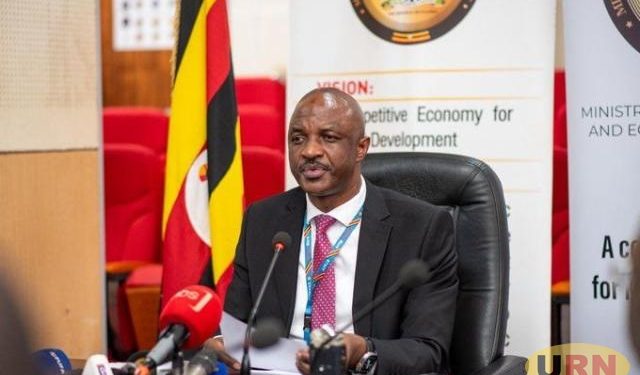By THE INDEPENDENT UG
Kampala, Uganda | THE INDEPENDENT | The Ministry of Finance, Planning, and Economic Development in Uganda has issued a directive to government statutory bodies, urging them to prioritize their expenditures, despite the constitutional freedom they possess in managing their finances. This directive follows public outcry over the purchase of high-end new vehicles for past Speakers of Parliament, especially at a time when fulfilling other government obligations remains challenging.
Ramathan Ggoobi, the Permanent Secretary and Secretary to the Treasury, emphasized that although the constitution grants these institutions financial autonomy, they must align their spending with the government’s priorities. During a briefing on the Quarter Three Expenditure Releases and an update on the economy, Ggoobi highlighted the need for government statutory bodies to adhere to national priorities.
The move aims to reduce the demand for supplementary budgets, which has sparked public concern about the government’s spending practices during times of reduced resources. Ggoobi justified these measures by revealing that he had rejected requests amounting to 3.5 trillion Shillings from various ministries, departments, and agencies.
In December of the previous year, Uganda’s parliament approved a supplementary budget totaling around 3.5 trillion Shillings for various activities, including clearing a Bank of Uganda debt, preparations for hosting the Non-Aligned Movement and G77+China summits, the next national population census, and classified expenditure for the Office of the President.
Concerns were raised about why the Ministry of Lands, Housing, and Urban Development received a supplementary land compensation for three cultural institutions, with some questioning whether it could have waited. Ramathan Ggoobi, the Permanent Secretary and Secretary to the Treasury, explained that certain items in four categories couldn’t wait for the next year’s budget. He cited security and classified expenditures as examples, stating that they cannot be subject to debate.
Julius Mukunda, the CEO at the Civil Society Budget Advocacy Group (CSBAG), challenged the ministry on some items he believed should not have been part of the supplementary budget. He questioned the inclusion of expenditures for two international meetings that had been known about for over two years and could have been adequately planned for.
While acknowledging the detailed explanation provided by the ministry for additional fund requests, Mukunda urged the government to enforce better planning for major and periodic events like the national census, which he argued should not be considered an emergency requiring a supplementary budget.
In response, Ggoobi stated that some projects were too substantial to be covered by the annual budget and required either borrowing or seeking supplementary funds. He emphasized that the government would spend according to available resources, necessitating the postponement of some previously planned projects to address current priorities.
The Permanent Secretary and Secretary to the Treasury in Uganda, Ramathan Ggoobi, stated that the government is committed to improving the management of debt and expenditure. The focus will be on boosting revenue collection, rationalizing government expenditure, and controlling government borrowing.
During the third quarter, excluding debt, external financing, and local revenue, a total of 4.974 trillion Shillings was released, bringing the total released so far to 19.921 trillion Shillings. This represents 78.9 percent of the planned budget of 25.25 trillion Shillings.
However, when considering supplementary budgets, the total expected to be spent is 29 trillion Shillings. When debt, external financing, and local revenue are factored in, the total released for the third quarter is 14.617 trillion Shillings, bringing the total for the year so far to 45.747 trillion Shillings.
*******
URN







Discussion about this post